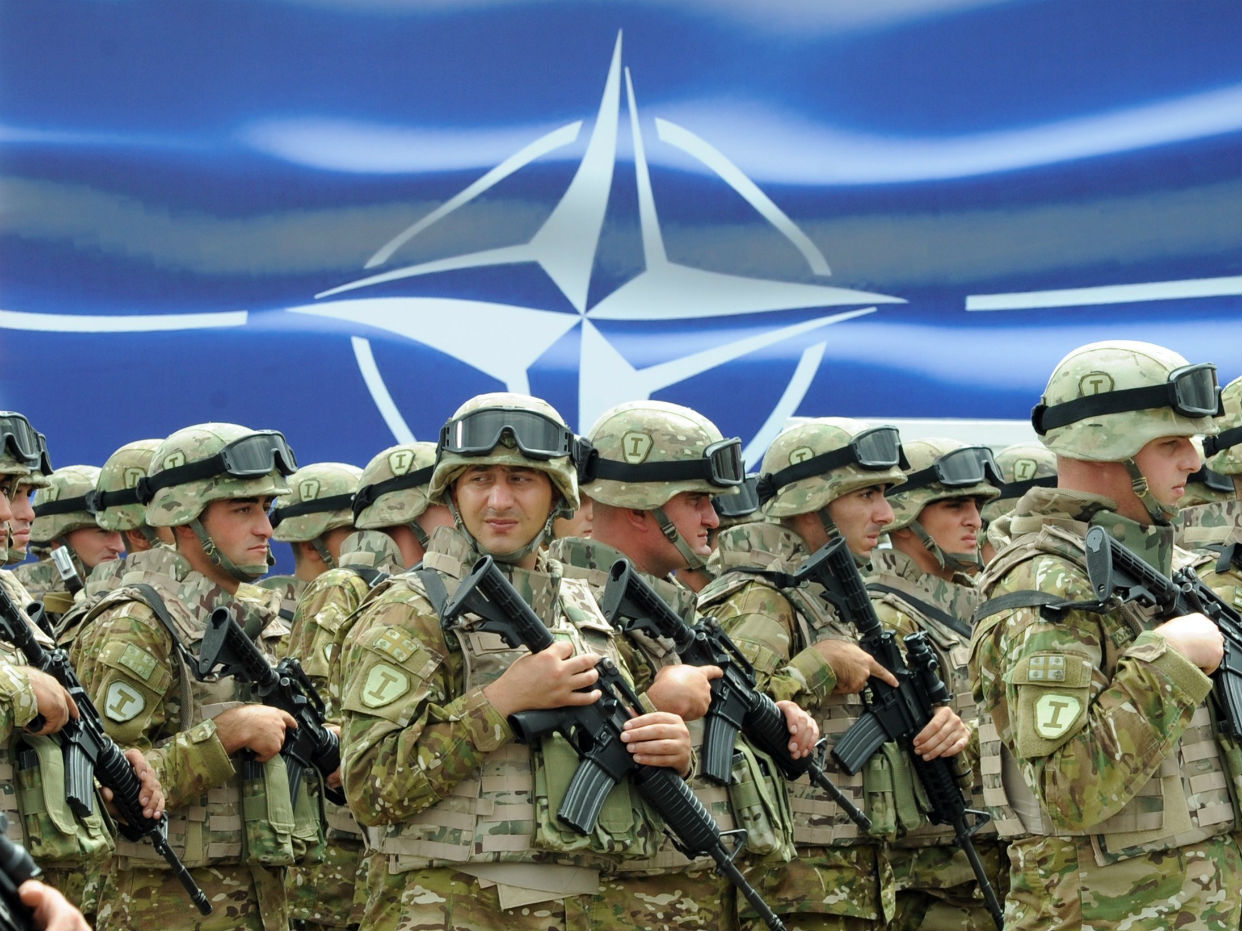Will Nato intervene in Ukraine?
President Petro Poroshenko has asked the alliance to deploy ships to Black Sea amid escalating tensions with Russia

A free daily email with the biggest news stories of the day – and the best features from TheWeek.com
You are now subscribed
Your newsletter sign-up was successful
Kiev has urged Nato to send ships to police waters near Crimea in response to Russia’s alleged seizure of three vessels belonging to the Ukrainian Navy.
Ukrainian President Petro Poroshenko told German newspaper Bild that his country hopes “that states within Nato are now ready to relocate naval ships to the Sea of Azov in order to assist Ukraine and provide security”.
Following Sunday’s naval stand-off, Nato stated that it will offer its “full support” to Ukraine, which is not a member of the international military alliance. However, Nato has not confirmed that it will deploy the requested military resources.
The Week
Escape your echo chamber. Get the facts behind the news, plus analysis from multiple perspectives.

Sign up for The Week's Free Newsletters
From our morning news briefing to a weekly Good News Newsletter, get the best of The Week delivered directly to your inbox.
From our morning news briefing to a weekly Good News Newsletter, get the best of The Week delivered directly to your inbox.
The organisation’s ambassadors have agreed to meet Ukraine’s envoy for emergency talks in Brussels on Monday, after Poroshenko warned of a possible “full-scale war” with Russia over the Azov Sea clash.
But doubts remain over whether Nato will agree to get involved.
What does Poroshenko want?
Tensions in the Black Sea region have been high since Russia’s annexation of Crimea from Ukraine in 2014, but escalated dramatically over the weekend when three Ukrainian sailors were wounded after Russian border guards opened fire on two gunboats and a tug near the Kerch Strait.
A free daily email with the biggest news stories of the day – and the best features from TheWeek.com
The strait is a vital transport route for Ukrainian ships sailing from the Black Sea to the Azov Sea, and a bilateral treaty gives both countries the right to patrol the waters - so the military confrontation sent shockwaves through Kiev.
In the interview with Bild, Poroshenko claimed that Russian President Vladimir Putin “wants nothing less but to occupy the [Azov] sea”.
“We cannot accept this aggressive policy of Russia. First it was Crimea, then eastern Ukraine, now he wants the Sea of Azov,” said the Ukrainian leader. Calling for Nato members to act, Poroshenko said that “the only language he understands is the unity of the Western world”, adding: “Germany, too, has to ask itself, what will Putin do next if we do not stop him?”
What will Nato do?
The alliance has called for calm ahead of the emergency talks, to be attended by Nato Secretary General Jens Stoltenberg, in Brussels on Monday.
In a statement, the alliance said that it “will continue to provide political and practical support to the country [Ukraine] within the framework of our established cooperation” and will “continue to monitor the situation”. No mention was made of military intervention in the Black Sea, which Nato routinely patrols.
However, a spokesperson said that Nato ships have spent 120 days in the area this year, compared with 80 in 2017, says the Associated Press.
Despite that increased presence, Canada-based news site CBC predicts that the bloc “will be unlikely to heed Poroshenko’s request, which could trigger a confrontation with Russia”.
For its part, Russia has dismissed Kiev’s claims of aggression. Kremlin spokesperson Dmitry Peskov said that Poroshenko’s request to Nato is “clearly aimed at provoking further tensions” and was driven by the Ukrainian leader’s “electoral and domestic policy motives”.
Recent polls suggesting that only about 10% of the electorate plans to vote for Poroshenko in next year’s elections, according to the BBC.
Putin has gone so far as to claim that Ukraine staged the naval clash, in what he calls a “provocation” of Russia, to boost Poroshenko’s popularity.
“The authorities in Kiev are successfully selling anti-Russian sentiments as they have nothing else left to sell. They can get away with whatever they do. If they want to eat babies for breakfast today, they will likely serve them too,” Putin added.